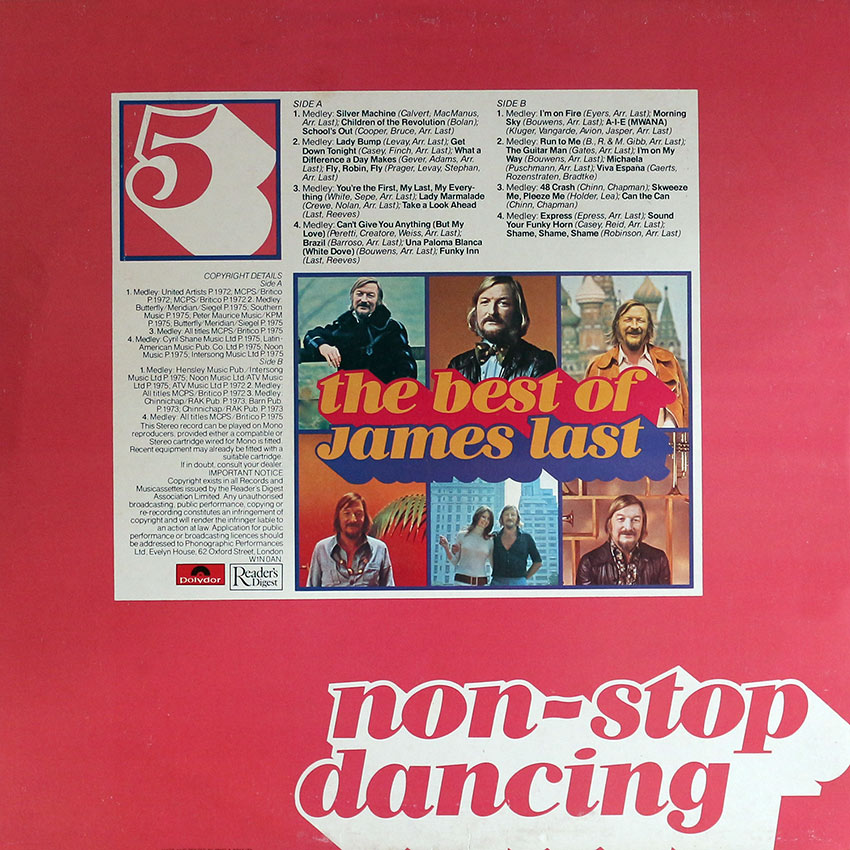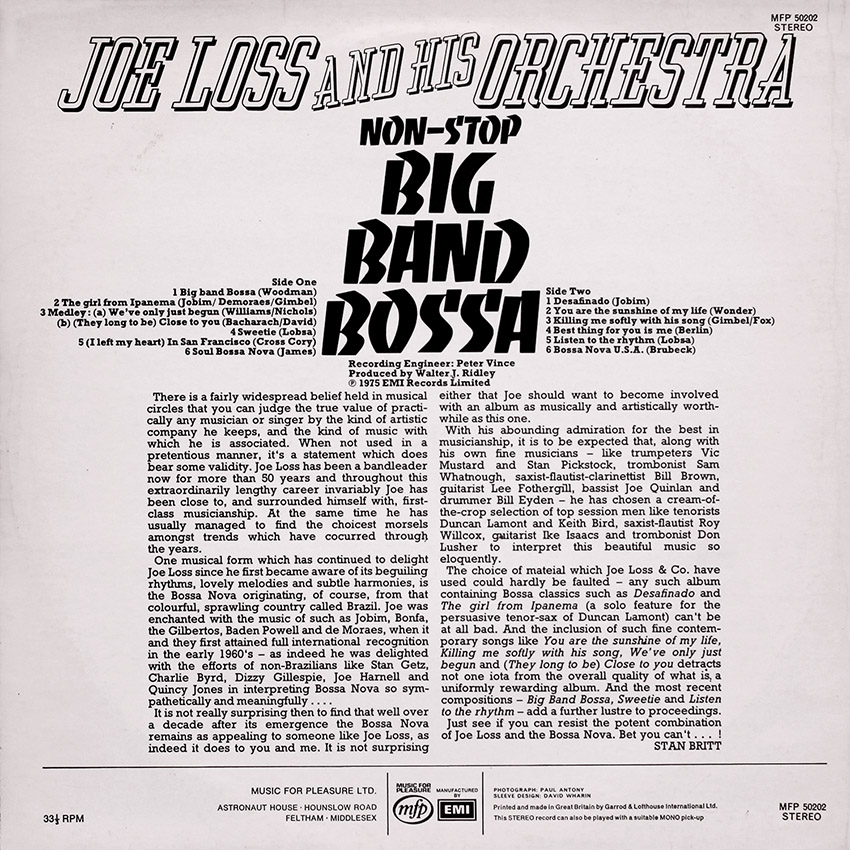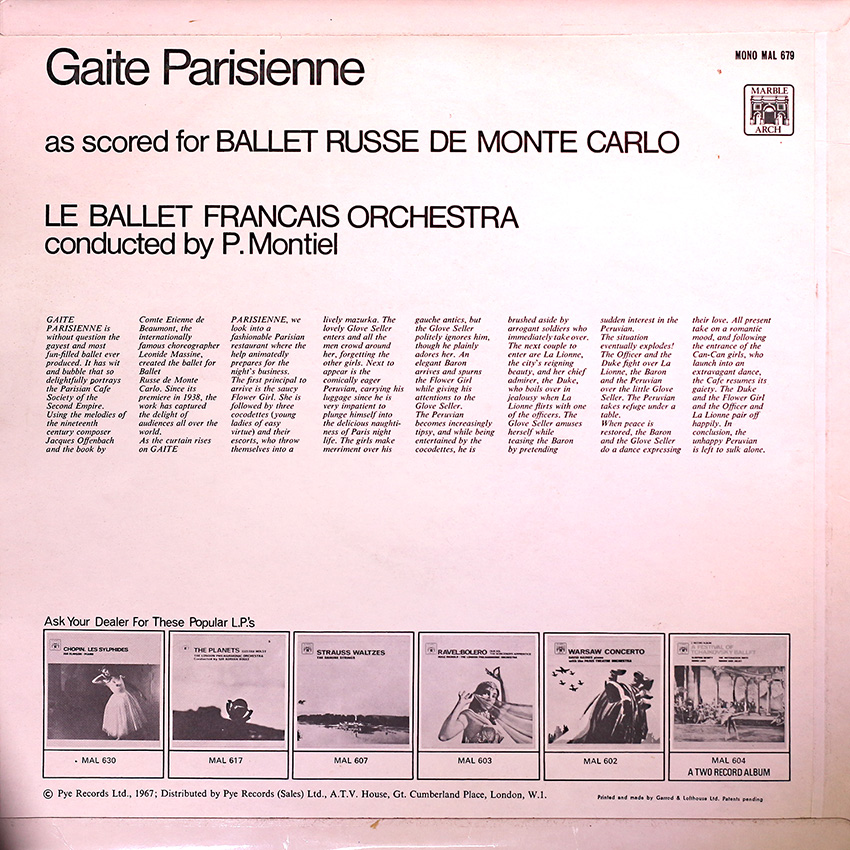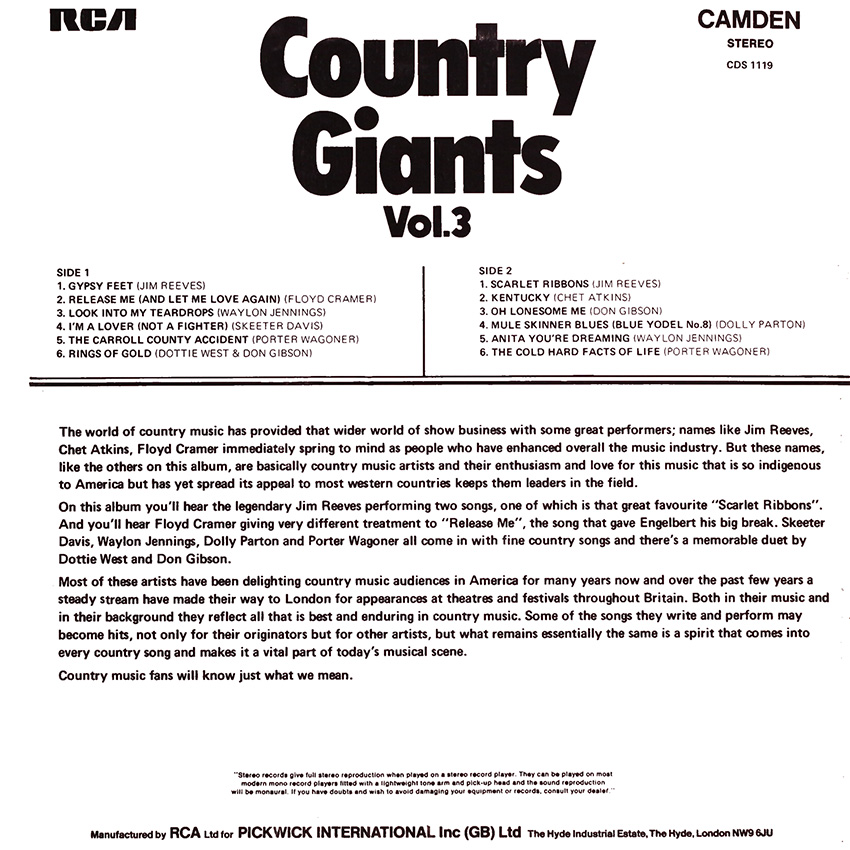The Best of James Last – Non-Stop Dancing
Featuring as always James Lasts’s lush orchestrations, punchy brass and soothing choral voices. It seems no song could resist Mr Last’s interpretations.

Label: Polydor/Readers Digest RDES 5120
Featuring as always James Lasts’s lush orchestrations, punchy brass and soothing choral voices. It seems no song could resist Mr Last’s interpretations.

Label: Polydor/Readers Digest RDES 5120
There is a fairly widespread belief held in musical circles that you can judge the true value of practically any musician or singer by the kind of artistic company he keeps, and the kind of music with which he is associated. When not used in a pretentious manner, it’s a statement which does bear some validity. Joe Loss has been a bandleader now for more than 50 years and throughout this extraordinarily lengthy career invariably Joe has been close to, and surrounded himself with, first-class musicianship. At the same time he has usually managed to find the choicest morsels amongst trends which have occurred through the years.
One musical form which has continued to delight Joe Loss since he first became aware of its beguiling rhythms, lovely melodies and subtle harmonies, is the Bossa Nova originating, of course, from that colourful, sprawling country called Brazil. Joe was enchanted with the music of such as Jobim, Bonfa, the Gilbertos, Baden Powell and de Moraes, when it and they first attained full international recognition in the early 1960’s – as indeed he was delighted with the efforts of non-Brazilians like Stan Getz, Charlie Byrd, Dizzy Gillespie, Joe Hornell and Quincy Jones in interpreting Bossa Nova so sympathetically and meaningfully …
It is not really surprising then to find that well over a decade after its emergence the Bossa Nova remains as appealing to someone like Joe Loss, as indeed it does to you and me. It is not surprising neither that Joe should want to become involved with an album as musically and artistically worth-while as this one.
With his abounding admiration for the best in musicianship, it is to be expected that, along with his own fine musicians – like trumpeters Vic Mustard and Stan Pickstock, trombonist Sam Whatnough, saxist-flautist-clarinettist Bill Brown, guitarist Lee Fothergill, bassist Joe Quinlan and drummer Bill Eyden – he has chosen scream-of-the-crop selection of top session men like terrorists Duncan Lamont and Keith Bird, saxist-flautist Roy Willcox, guitarist Ike Isaacs and trombonist Don Lusher to interpret this beautiful music so eloquently.
The choice of material which Joe Loss & Co. have used could hardly be faulted – any such album containing Bossa classics such as Desafinado and The girl from Ipanema (a solo feature for the persuasive tenor-sax of Duncan Lamont) can’t be at all bad. And the inclusion of such fine contemporary songs like You are the sunshine of my life, Killing me softly with his song, We’ve only just begun and (They long to be) Close to you detracts not one iota from the overall quality of what is, a uniformly rewarding album. And the most recent compositions – Big Band Bossa, Sweetie and Listen to the rhythm – add a further lustre to proceedings.
Just see if you can resist the potent combination of Joe Loss and the Bossa Nova. Bet you can’t!
STAN BRITT

Label: MFP 50202
Photograph: Paul Antony
Sleeve Design: David Wharin
GAITE PARISIENNE is without question the gayest and most fun-filled ballet ever produced. It has wit and bubble that so delightfully portrays the Parisian Cafe Society of the Second Empire, Using the melodies of the nineteenth century composer Jacques Offenbach and the book by Comte Etienne de Beauirnont, the internationally famous choreographer Leonide Massine created the ballet for Ballet Russe de Monte Carlo. Since its premiere in 1938, the work has captured the delight of audiences all aver the world.
As the curtain rises on GAITE PARISIENNE, we look into a fashionable Parisian restaurant where the help animatedly prepares for the night’s business. The first principal to arrive is the saucy Flower Girl. She is followed by three cocodettes (young ladies of easy virtue) and their escorts, who throw themselves into a mazurka. The lovely Glove Seller enters and all the men crowd around her, forgetting the other girls. Next to appear is the comically eager Peruvian, carrying his luggage since he is very impatient to plunge himself info the delicious naughtiness of Paris night life. The girls make merriment over his gauche antics, but the Glove Seller politely ignores him, though he plainly adores her.
An elegant Baron arrives and spurns the Flower Girl while giving his attentions to the Glove Seller, The Peruvian becomes increasingly, tipsy, and while being entertained by the cocodettes, he is brushed aside by arrogant soldiers who immediately take over. The next couple to enter ore La Lionne the city’s reigning beauty, and her chief admirer, the Duke, who boils over in jealousy when La Lionne flirts with one of the officers. The Glove Seller amuses herself while teasing the Baron by pretending sudden interest in the Peruvian. The situation eventually explodes! The Officer and Duke fight over La Lionne, the Baron and the Peruvian over the little Glove Seller, The Peruvian takes refuge under a table.
When peace is restored. The Baron and the Glove Seller do a dance expressing their love. All present take on a romantic mood, and following the entrance of the Can-Can Girls, who launch into an extravagant dance, the Cafe resumes its gaiety. The Duke and the Flower Girl and the Officer and La Lionne pair off happily. In conclusion, the unhappy Peruvian is left to sulk alone.

Label: Marble Arch MAL 679
Country Giants. Giants of Country Music. But that’s enough about the cover. I’m no country music expert but I suspect this selection wasn’t taken from the premier league of country hits.
The world of country music has provided that wider world of show business with some great performers; names like Jim Reeves, Chet Atkins, Floyd Cramer immediately spring to mind as people who have enhanced overall the music industry. But these names, like the others on this album, are basically country music artists and their enthusiasm and love for this music that is so indigenous to America but has yet spread its appeal to most western countries keeps them leaders in the field.
On this album you’ll hear the legendary Jim Reeves performing two songs, one of which is that great favourite “Scarlet Ribbons”. And you’ll hear Floyd Cramer giving very different treatment to “Release Me”, the song that gave Engelbert his big break. Skeeter Davis, Waylon Jennings, Dolly Parton and Porter Wagoner all come in with fine country songs and there’s a memorable duet by Dottie West and Don Gibson.
Most of these artists have been delighting country music audiences in America for many years now and over the past few years a steady stream have made their way to London for appearances at theatres and festivals throughout Britain. Both in their music and in their background they reflect all that is best and enduring in country music. Some of the songs they write and perform may become hits, not only for their originators but for other artists, but what remains essentially the same is a spirit that comes into every country song and makes it a vital part of today’s musical scene.
Country music fans will know just what we mean.

Label: Camden 1119